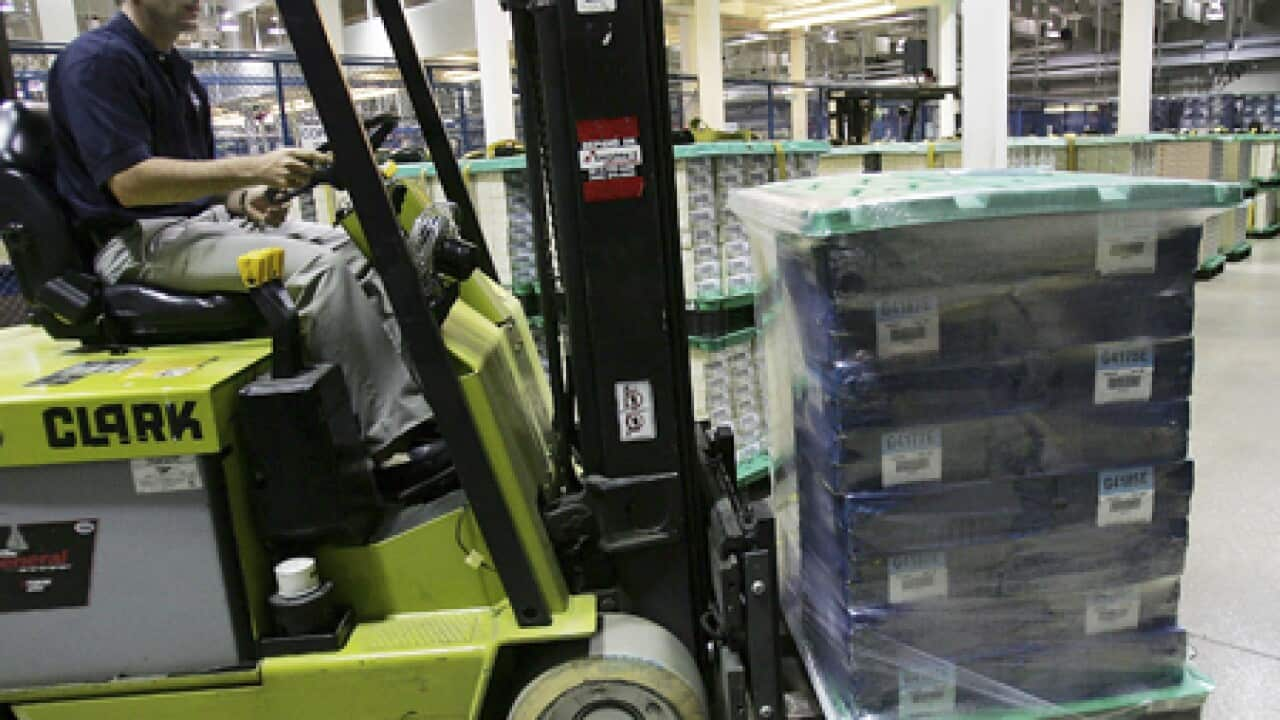In the 1850s during the Gold Rush era, a group of overworked stonemasons in Melbourne downed their tools and demanded an eight-hour work day.
It was the first protest of a series of victories that led to Australia having one of the most progressive labour environments in the world by the early 20th century.
But little has changed in the past 172 years when it comes to full-time working conditions for employees across the country, says Denis Moriarty, the founder of Victorian-based tech company Our Community.
"I think employers are actually killing people with the work hours that they’re getting them to do - it's not good for their health, it’s not good for their business, and it’s not good for the economy," he said.
Productivity has improved with four-day week, says employer
Mr Moriarty's company is now halfway through a six-month pilot study of a four-day work week, run by not-for-profit 4 Day Week Global.
The trial, involving 20 organisations in industries ranging from finance to fashion in Australia, New Zealand, and the Pacific, offers employees reduced working hours with no loss in pay. It runs alongside similar pilot schemes taking place in Ireland, the United States, Canada, Spain, and the UK.
Mr Moriarty said so far, the results from his workplace of 75 staff members have been "unbelievably successful".
"I don't think our people have ever been happier," he said.
"They're doing things more with their partners and with their kids, they're taking up hobbies that they never thought that they would do. And the productivity is better in four days than what it was in five days."

Denis Moriarty is the founder and group managing director of Our Community. Credit: Supplied
A tool to get employees enjoying work
As part of the trial, employees are only expected to complete a 30 to 32-hour week in four days, for the same pay. Flexible working arrangements, including working from home on some days, can also be incorporated.
With many companies around the world having embraced remote working following the COVID-19 pandemic, those unable to do should instead consider adopting a four-day work week for their employees, says Karin Sanders, Professor in the School of Management and Governance at UNSW Business School.
"For some industries and occupations, like frontline workers including nurses in hospitals and teachers, there are huge burnout rates," she said.
"So this is really a great tool to get people healthier and enjoying their job so much more."
Why Australia is slow on the uptake of four-day weeks
But despite evidence for the shift to a four-day work week, including in Scandinavian countries and the UK, Professor Sanders said many Australian organisations were reluctant to challenge the status quo.
"It's really not common in Australia ... the culture is much more on performance and not focusing on the well-being of people," she said.
While she doesn't expect the four-day work week to be widely accepted by Australian employers in the near future, Professor Sanders said further trials and research would help to convince organisations of the benefits.
"Many don't have five days of 100 per cent productivity at the moment because people are ill, they are tired, they are making mistakes, and that is all making their productivity and performance lower."
"To improve that, you need to give them one day off with the same salary."

Health worker burnout has surged since the Covid-19 pandemic, experts say. Source: AAP
UK study shows no loss in productivity
At the halfway point of the four-day week pilot program in the United Kingdom, early research gathered by 4 Day Week Global revealed a general tenor of positive experiences from employees and employers alike.
Of the 70 organisations participating in the trial, 88 per cent said that the four-day week is working "well" for their business and 86 per cent indicated they were "likely" or "extremely likely" to consider continuing the four-day work week beyond the end of the trial in late November.
All but two of the 41 companies said productivity was either the same or had improved. Remarkably, six companies said productivity had significantly improved.
In addition, 46 per cent of respondents said their business had "maintained around the same level" of productivity. Some saw further benefits with 34 per cent reporting that productivity had "improved slightly," while 15 per cent said it had "improved significantly."
4 Day Week Global CEO Joe O’Connor said the organisations in the UK pilot were "laying the foundation for the future of work by putting a four-day week into practice."
“We are learning that for many it is a fairly smooth transition and for some there are some understandable hurdles – especially among those which have comparatively fixed or inflexible practices, systems, or cultures which date back well into the last century.
"A lot of businesses have more flexibility and nimbleness among their people and teams."
Mr O'Connor said the findings would be used to inform the process for many more businesses to trial, adapt, and reap the benefits of the four-day work week.











